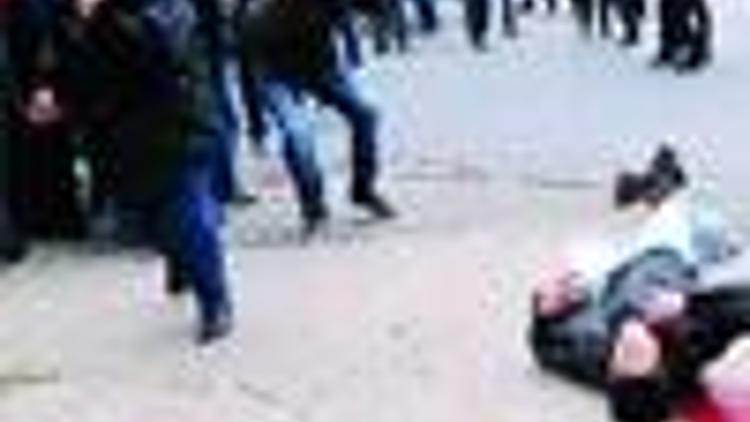Media workers survive only by chance in Turkey
Güncelleme Tarihi:

ANKARA - Experts say the competitive Turkish media environment and an unorganized governmental system make members of the press put themselves in danger by rushing into news stories
The media coverage of Monday’s police operation in Istanbul’s Bostancı district, which ended in the injury of a television cameraman, has put the professional practices of the Turkish press under scrutiny.
Repercussions from the event, which ended in the deaths of three people, including the suspected militant targeted by the raid, revolved around the lack of security measures taken by the police and the media’s coverage of the incident. The press accused the police of taking insufficient measures, as the injured cameraman, affiliated with the private NTV channel, announced he would seek restitution in court. Prime Minister Recep Tayyip Erdoğan and Interior Minister Beşir Atalay meanwhile criticized media workers for risking their lives to cover the story.
For many experts and media professionals, Monday's outcome is the inevitable result of a competitive Turkish media system that urges members of the media to rush into news-making situations and fails to act in line with international media ethics that seek to secure press safety. The unorganized governmental system that forces press members to fend for themselves has also been criticized.
“The biggest mistake yesterday fell on the part of the police who failed to widen the security cordon,” said Doğan Tılıç of the Association of European Journalists. “But, in general, in such a competitive media environment, the media workers have to risk their lives to get the news.”
There are no officially fixed universal standards for ensuring the safety of media professionals on dangerous assignments, Tılıç said. Instead, each country shapes its own rules based on its culture and society. The safety of media workers was the priority set by the International Federation of Journalists, but Turkey, Tılıç said, fails to abide by the widely respected universal principles in this respect.
Risking danger for ‘the best image’
“All media institutions have to train their media staff to protect themselves in dangerous situations in line with the universal ethics rules,” Tılıç said. “But Turkish media institutions do not do this. If their safety in is danger, how can they keep the public informed?”
Esat Pala, editor of the private Star TV channel, said the rules exist only on paper in Turkey, where institutional and personal factors oblige media workers to rush into sticky situations. “As the media institutions, we, of course, don’t want our staff be in danger,” Pala said. “But we need the best image or story – especially from the TV cameramen and journalists. And sometimes it is the media workers themselves who want to capture the best moment, risking their lives for their personal ambitions and professional expectations.”
Pala said that Star TV usually tries to pick the appropriate person for the job, avoiding sending women to the more dangerous assignments in Turkey’s east, for example. Still, he said, the institutionalization of this practice has not been achieved and media workers in general have little safety.
“In the West, for instance, all the rules are well-established for the media staff’s safety. All the points where the press has to stand to follow the story are all determined. They also have a strong spokesperson system,” Pala said. “Here, there are usually no spokespeople from the government side to inform the media of new developments, so the press members themselves are obliged to take risks to convey the news.”
Human life should come first
Associate Professor Aslı Tunç of Istanbul’s Bilgi University said journalists in Turkey readily risk their lives for the sake of better ratings and beating their professional competition.
“Although the competition is fierce and the media sector is incredibly demanding, there must be universal rules to protect journalists' safety,” Tunç said.
“The media outlets always ask the cameramen and reporters for more juicy news and more sensational content. So as soon as such a drama breaks out, journalists lose their perspective and try to feed their affiliated stations more and more drama.”
“The TV stations do not impose any ground rules on their reporters and cameramen in times of crisis,” Tunç added. “Sadly, the general approach of the media companies is to demand images from their photojournalists and cameramen, no matter what it takes.”
In Western European countries and in the United States, where there are even more competitive media environments, the safety of journalists comes first, she said.
“There is no more precious thing than human life and Turkish media companies should acknowledge this fact,” Tunç said. “Unfortunately, I think being financially safe is much more important than being physically safe for the journalists right now.”

